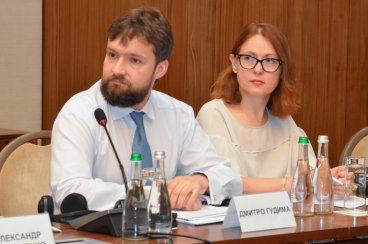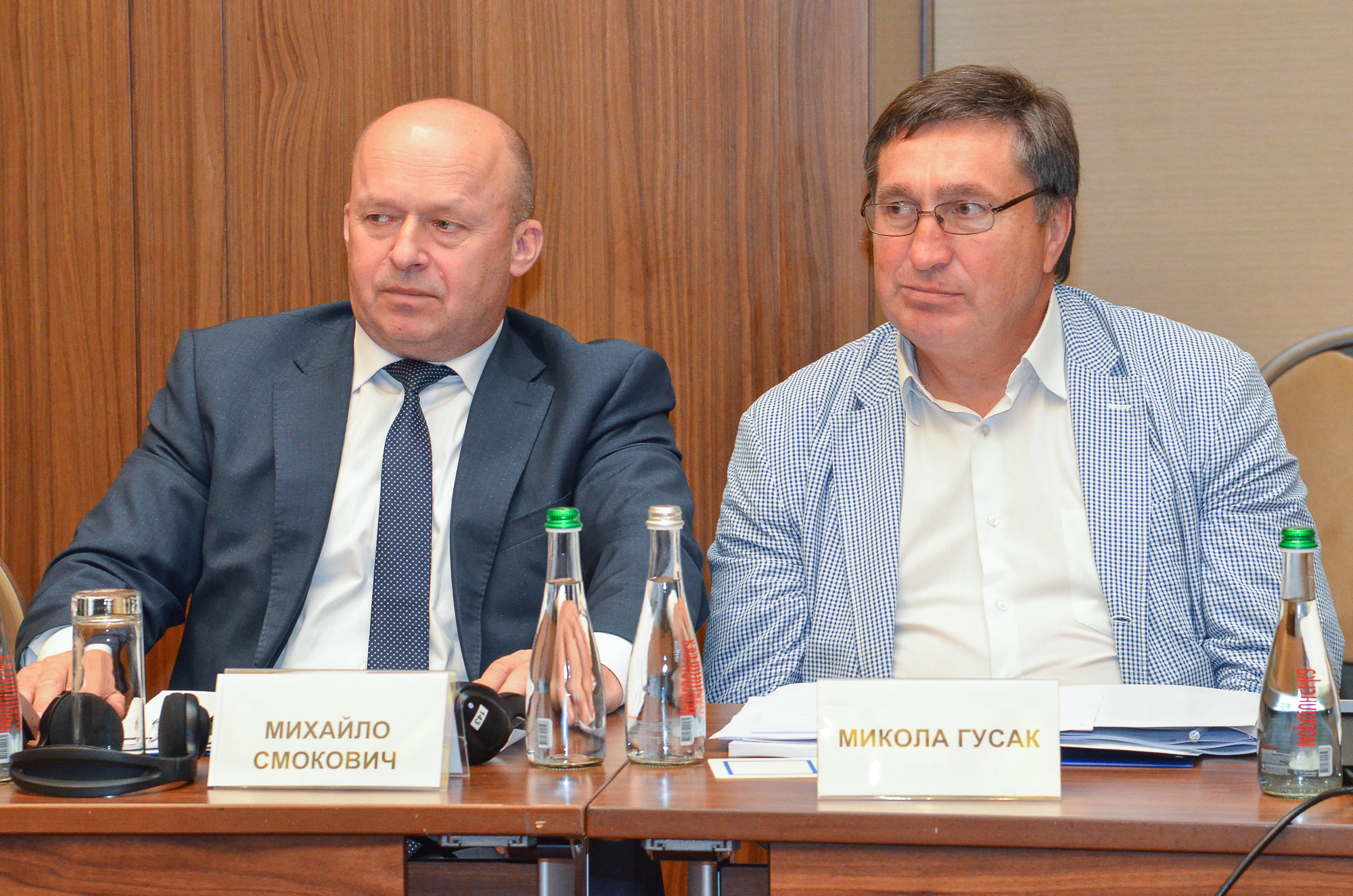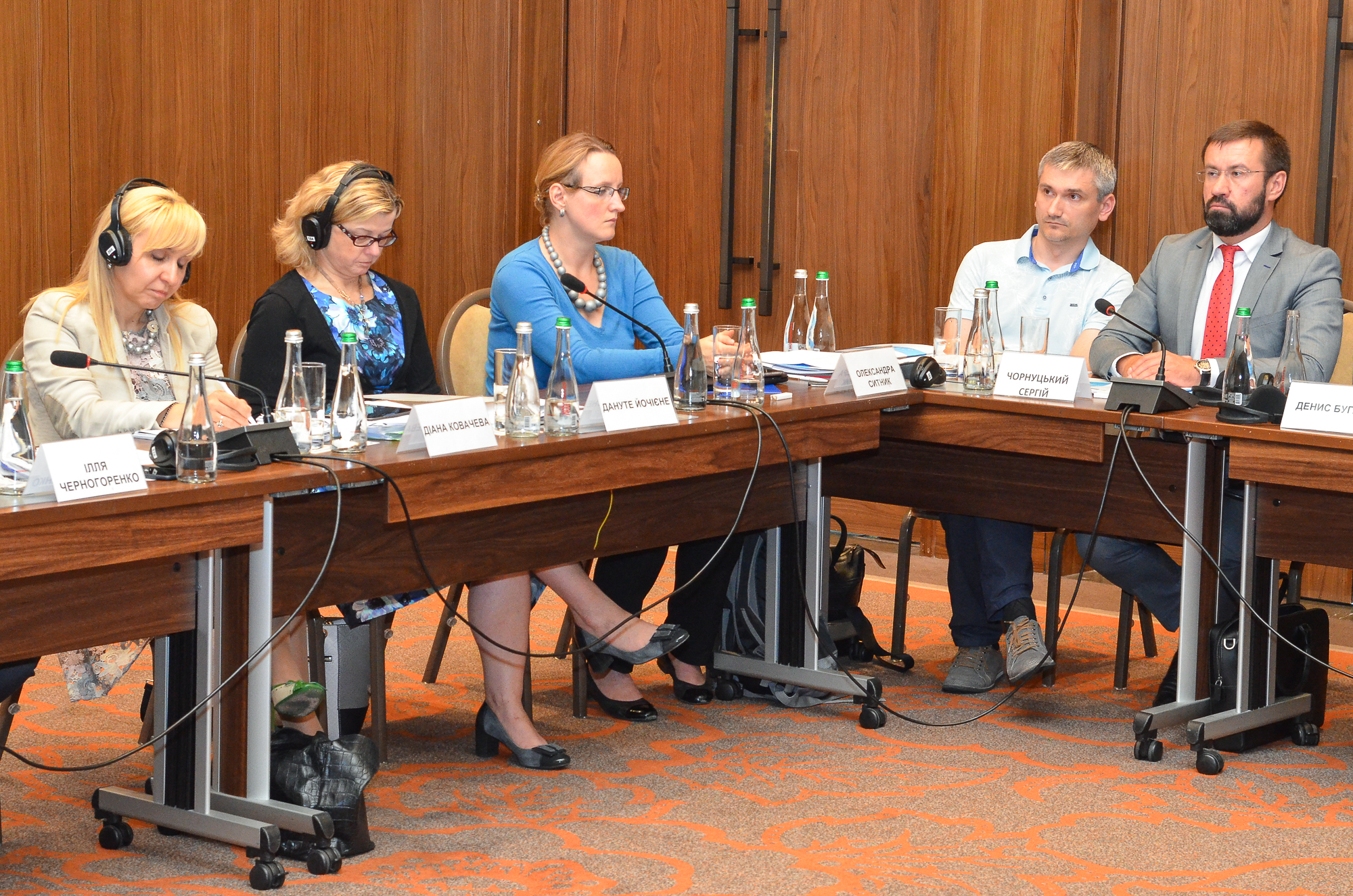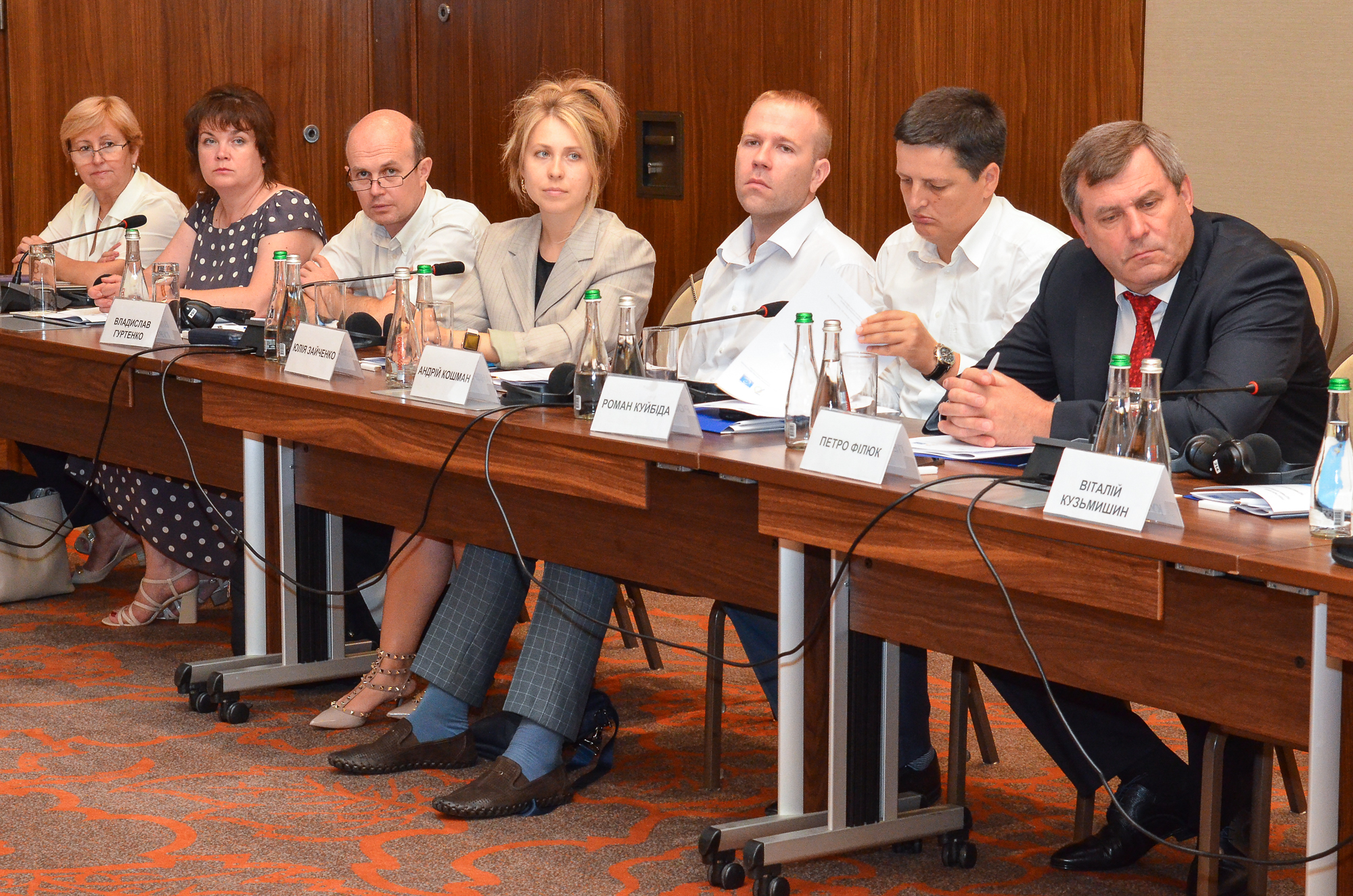Contact center of the Ukrainian Judiciary 044 207-35-46

Judge of the Grand Chamber of the Supreme Court Dmytro Hudyma put emphasis of this fact while participating in a round table devoted to the Presentation of the Report under Results of Study “Ukrainian Citizens’ Attitude to the Judicial System” held by the Razumkov Centre Sociological Service upon the request of the Council of Europe Office in Ukraine.
In Dmytro’s Hudyma opinion, to understand, which mechanisms shall be applied for increasing the trust to the judicial system in Ukraine, it is necessary to determine the concept of “trust”. Thus, this is a special phenomenon existing in a human consciousness as a reflection of his\her certain emotional state – attitude to him\herself and the environment. Besides, trust may be characterized as a belief into integrity, decency of a certain individual. Sociological measurements of this phenomenon are the measurements of just this emotional state of people on a certain day in a certain place.
The SC GC judge considers that to increase the level of trust in the judicial power it is necessary to implement appropriate mechanisms of communication between court and society within several directions linked with relevant means of communication: first – characterizes the results of judicial proceedings – judgments; second – behavior of representatives of the judicial power; third – appropriateness of performing the service function of court; forth – communication with society via the media and due to the application of contemporary technologies.

Regarding judgments, Dmytro Hudyma considers that they shall be particularly characterized by such a feature as quality. It provides the availability of judgments for a reader according to contents (writing in a simple language without complicated linguistic constructions) and convenience of its form (structuredness, clear separation of information about facts from legal arguments of court). The SC GC judge remarked that in order to improve the quality of judgments, a group of judges of the Supreme Court in cooperation with experts from the National Judicial Institute of Canada this year would develop a studying program of appropriate motivation of judgments. Besides, he expressed a though, that it would be nice, if trainings on legal analysis, legal reasoning were accessible for all law students, and called upon international organizations to promote the development of such trainings, taking into account foreign experience.
Concerning the second direction of the implementation of appropriate mechanisms of communication between court and society, Dmytro Hudyma noted that a judge’s behavior should be perfect in a hearing room, as well as outside it, so that the society would not have doubt, whether that judge could be trusted to settle a conflict.

The third direction – performing the service function by court: the court should begin from the entrance, its premises – places of general use, as well as hearing rooms – should be comfortable for the court, visitors and, particularly, for disabled individuals.
Talking about communications with society due to the media and contemporary technologies, the SC GC judge reminded about the Opinion No. 7 of the Consultative Council of European Judges, where it was noted that courts should learn to introduce themselves. Dmytro Hudyma informed that the Supreme Court made every effort to implement that guideline. Thus, communication policy developed in the SC is being discussed; speaker judges were elected to inform public about the SC position taking into account communication restrictions, particularly, as for pending cases, as well as the contents of discussion in the deliberation room. Besides, the Supreme Court has a web-site, Facebook account with more than 35 thousand subscribers, Telegram channel, which has scored more than 4 thousand subscribers within several months. The information on the web-site and social networks is published in simple and clear language and is followed with visualization, unlike in many western countries.
The speaker expressed his confidence that means of e-justice implemented in Ukraine would be improved significantly after the establishment of the Unified Judicial Information and Telecommunication System.
